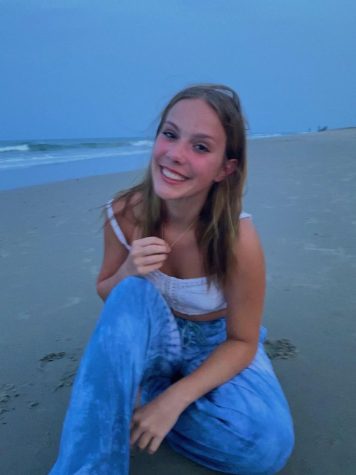People are obsessed with parasocial relationships
October 20, 2022
Taylor Swift spotted with possible new boyfriend: Kim Kardashian faces marital problems: Harry Styles speculated to be engaged.
In the age of media flooding society daily, following celebrity whereabouts is easier than ever. Through binge watching a Netflix favorite, consuming interviews and talk shows with celebrity guests or seeing what the world’s most famous stars are up to over social media, feeling connected to a fictional character or celebrity is actually a pretty common occurrence.
The way humans become emotionally attached to a movie star or musician is a result of something called parasocial relationships. Parasocial relationships are one-sided relationships, where one person extends emotional energy, interest and time, and the other person, usually a celebrity or fictional character, is completely unaware of the other’s existence.
According to Jyothsna Bhat, PsyD, author of “Parasocial Relationships: The Nature of Celebrity Fascinations”, “Parasocial relationships expand the social network in a way that negates the chance of rejection and empowers individuals to model and identify with individuals of their choosing who naturally elicit an empathic response. For some, the one sided nature of the relationship is a relief from strained complementary relationships in their real life. Parasocial relationships are cultivated by the media to resemble face-to-face relationships.”
Parasocial relationships can be formed for a multitude of reasons. A big reason for these one-sided bonds is the representation some get through characters and stars in the media.
“As people consume more media, they’ll start to draw inspiration and connections from the people they watch and see,” senior Nicole Ogebeide said. “Younger audiences are consuming more media and specific representation will allow them to feel comfortable with their identity. They deserve to watch people that look and act like them, so they don’t feel out of place or obligated to act in a way that’s presented as the norm.”
Being able to relate to an artist, character, or celebrity can be positive for those who may not have someone to look to in their real life.
“Parasocial bonds often help us fill gaps in our real-world relationships,” Jake Smith, author of “What Are Parasocial Relationships? Psychologists Explain the One-Sided Connections” said. “They’re a mostly risk-free way to feel more connected to the world. They can be developmental building blocks, too.”
Having diverse stars in the public eye can help individuals struggling with identity to relate to someone, even if that someone doesn’t know them personally.
“The growing representation I have seen has allowed me to figure out my identity,” Ogebeide said. “I feel more seen when I see people in the media that look or act like me. It’s comforting knowing that I’m not as different as society has made me seem.”
Artists tend to put very personal emotions into their music, which leads to an outlet for fans to really connect and feel like they know that artist. Through music, people are truly able to empathize and turn to that artist and their music for comfort or understanding.
“A lot of my favorite artists make music that can feel like it’s catered directly to me,” senior Gianna Jaronik said. “It’s really easy to feel like I understand an artist’s emotions, especially when their song really resonates with me. It feels like somebody understands exactly what I’m feeling at that moment.”
Along with the positives that come with forming parasocial relationships comes negatives. Obsession, invading personal life, self-esteem issues; when taken too far, these relationships become very harmful.
“Parasocial relationships are not always about love and adoration,” Jessica Bryne, author of “Parasocial Relationships: Gen-Z and Celebrities” reported. “It’s common for aggressive behavior to develop in fans, in online spaces and in person. Celebrities and television personalities have been fallen victim to stalkers, home invasion, abuse, and even murder.”
Some of the most famous celebrity stalking cases can be attributed to negative forms of parasocial relationships. For example, actress and model Rebecca Schaeffer’s stalking case ultimately led to her murder.
According to Page Six, “At 21 years old, Schaeffer was shot to death at the door of her Los Angeles apartment on July 19, 1989, by obsessed fan Robert Bardo. The Arizona native, who had written Schaeffer letters and tried to meet her at a studio where she worked, tracked the ‘My Sister Sam’ actress down after paying a private investigator to obtain her home address from state motor vehicle records.”
Obsessive parasocial relationships can even affect daily life for some. Overly idolizing a celebrity can distort one’s sense of self and reality.
With the constant social media updates, young teens are consuming content of their favorite stars and their “perfect” lives and appearances.
According to Carol Laurent Jarzyna, author of “Parasocial Interaction, the COVID-19 Quarantine, and Digital Age Media”, “One of the most common negative outcomes that individuals experience from parasocial relationships relates to body image and self-esteem. This affects adolescent girls the most and is usually mediated by social comparison. Several studies have indicated that in evaluating elements of their own appearance, especially weight, teenage girls frequently experience decreased self-esteem and poorer body image when compared to a parasocial friend.”
Parasocial relationships, on the surface, can be a harmless form of escapism and an outlet for those struggling to have someone to look to, but when taken too seriously and they start replacing real-life relationships, problems begin to arise.
“There are many benefits to these relationships, but it’s possible for them to go too far if the individual lacks self-awareness, or develops an obsession,” said Sophie Hurwitzs, author of “COVID Era Sees Uptick in Use of Parasocial Relationships to Self-Soothe.” “Talk to a doctor or psychiatrist if you feel that obsessive thoughts about a media persona are getting in the way of living your own life.”







